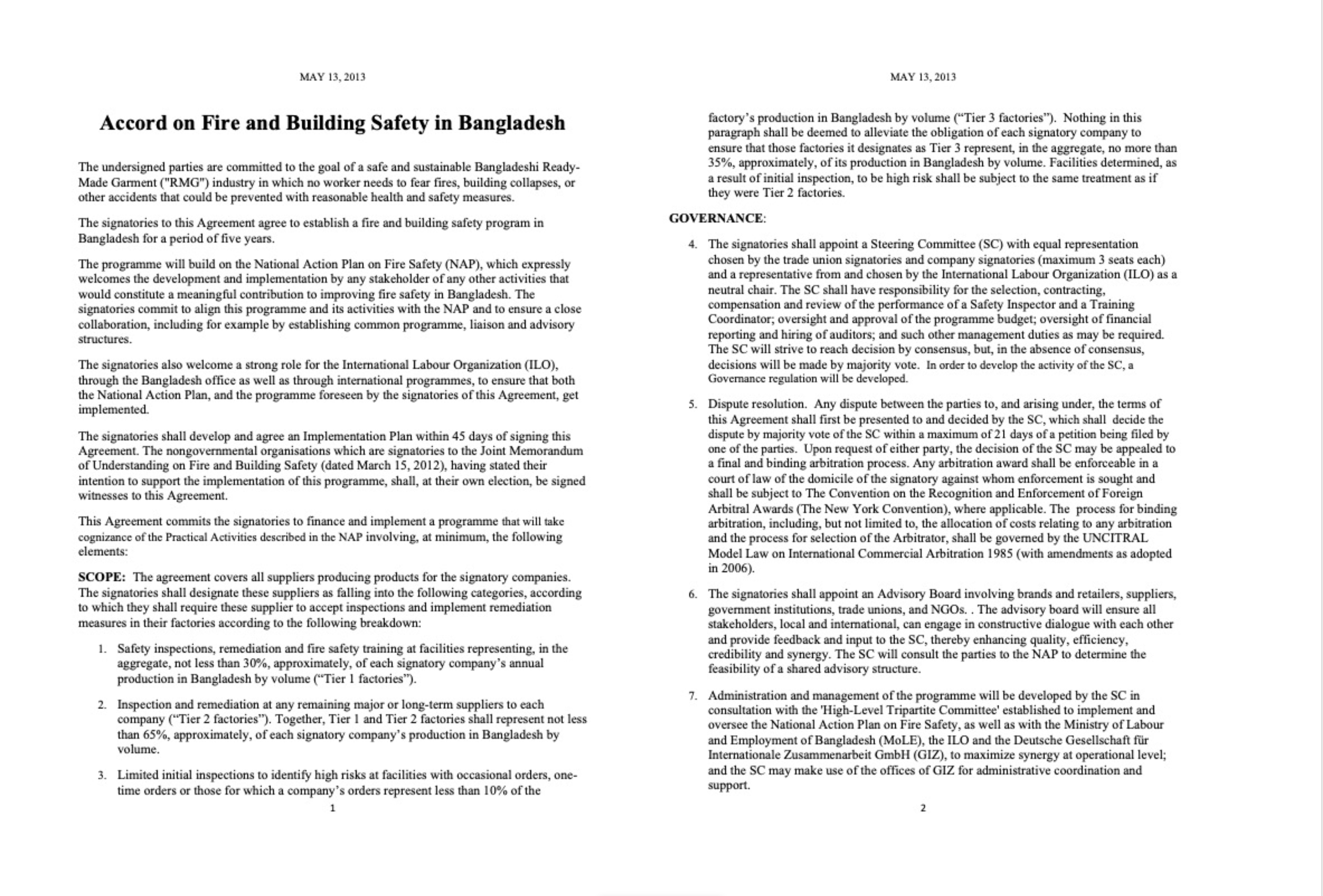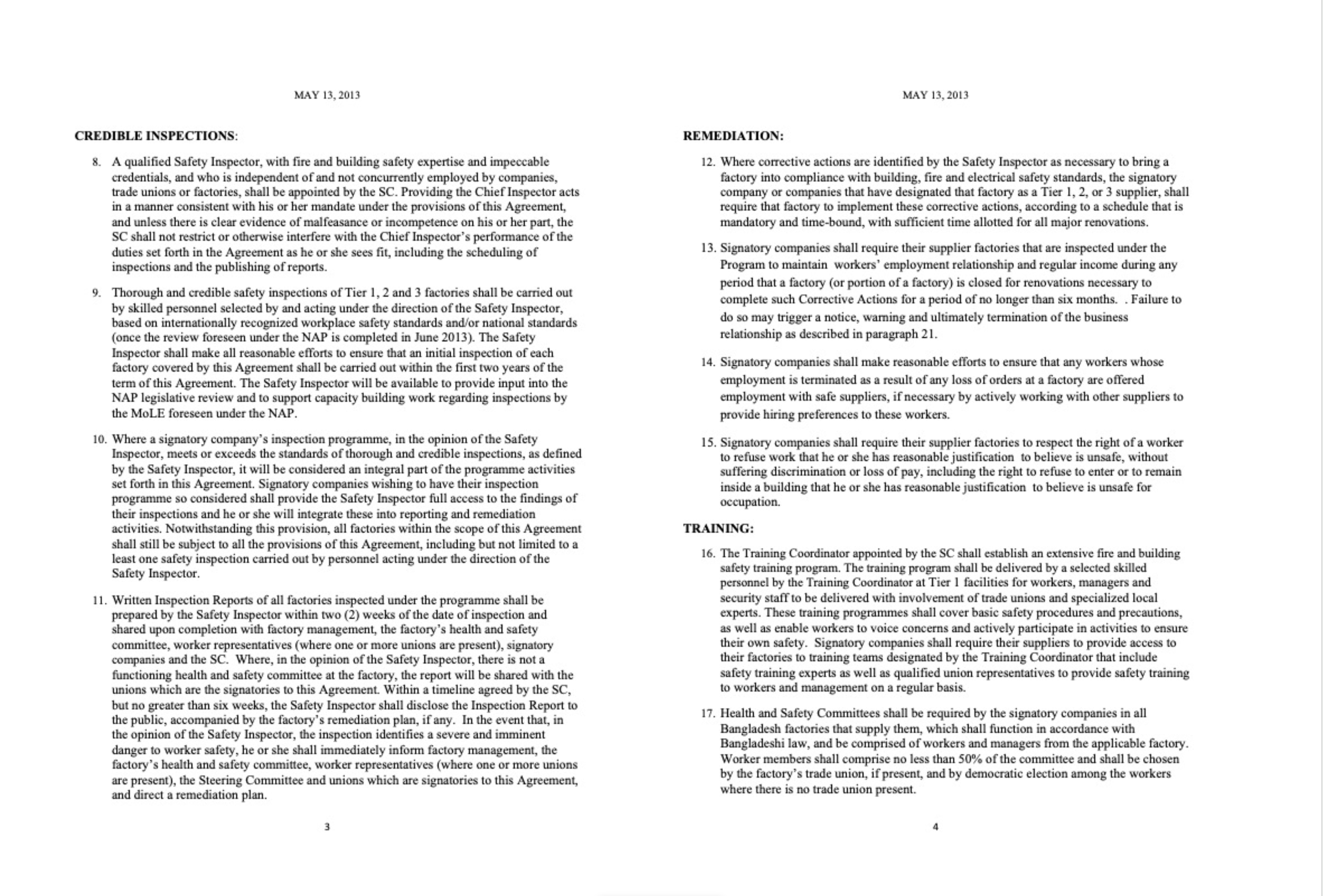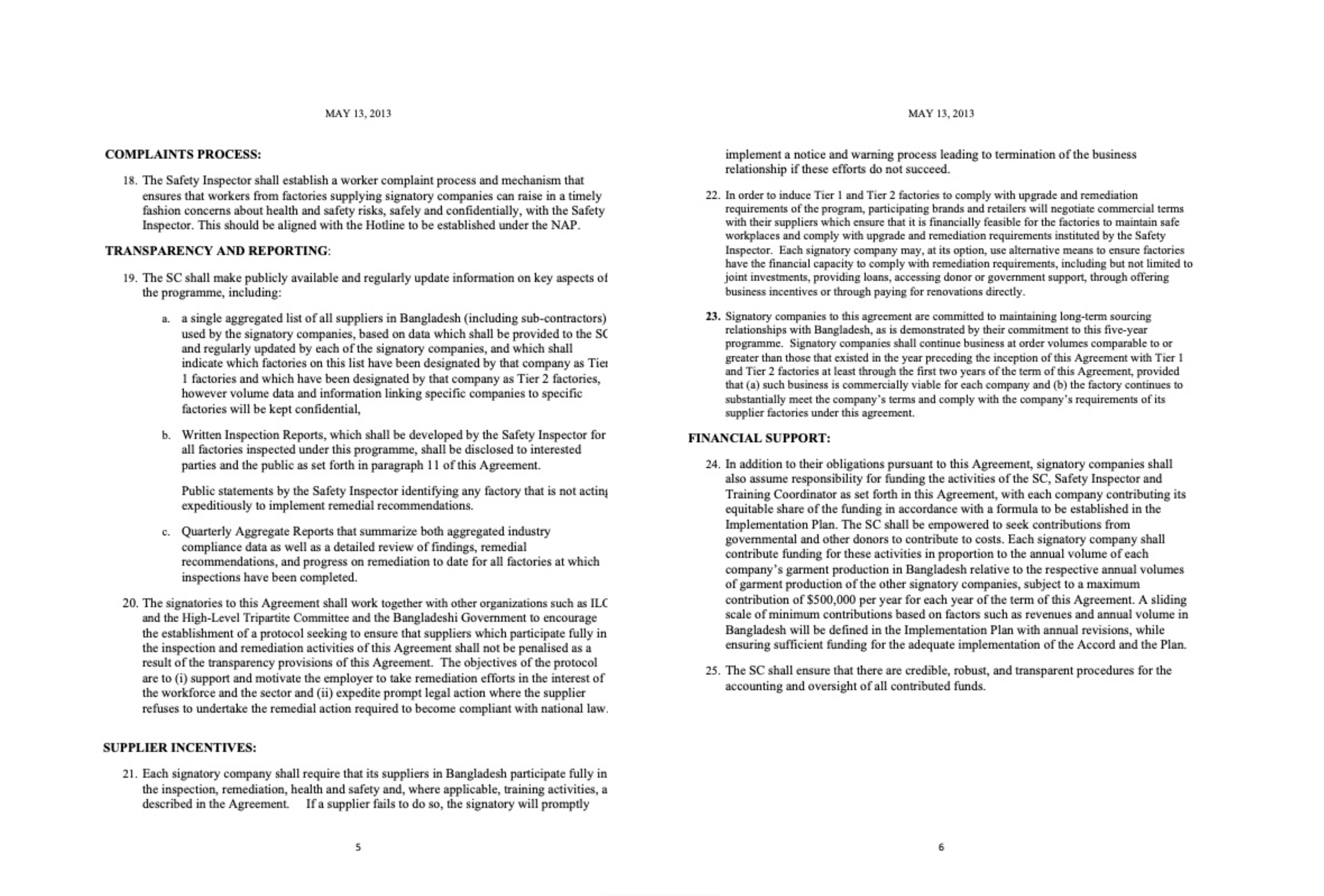

followthethings.com
Sport & Fitness | Fashion
“Cicih Sukaesih’s North America Nike tour“
A speaker tour of North America by sacked Indonesia Nike factory worker Cicih Sukaesih, sponsored by Global Exchange, Working Group on Nike, Press 4 Change, Campaign for Labor Rights, Canadian Auto Workers, Operation PUSH, Jobs for Justice, Amnesty International, Frontlash (a branch of the AFL-CIO) and the Alberta Federation of Labour.
Newspaper report reproduced above. Search for a 2017 BBC interview with Cicih Sukaesih about this tour here.
Indonesian Nike factory worker Cicih Sukaesih is sacked for organising a successful strike action for minimum wages and better conditions. So North American anti-sweatshop organisations recruit her to front a multi-city tour with stops in New York City. Chicago, San Francisco, Vancouver, Toronto … She wants Nike CEO Phil Knight and basketball star Michael Jordan to explain the price of the shoes she has made, their astronomical pay and her colleagues’ extraordinarily bad pay and conditions. She visits Nike’s HQ, leads protests at its Nike Town stores, describes the working conditions she has experienced, urges supporters to write to Jordan to persuade him to use his celebrity power to help factory workers and urges Nike to reinstate her and her sacked colleagues. She sometimes tries on a pair of Nike shoes in store. Wearing them makes her feel distinguished. But their price tag would eat up two or three months of her salary. Where does all that money go? Her removal from a store by Nike security staff after trying on the Nike shoes she makes is quite a spectacle. A perfect scene for media coverage that can make Nike’s sweatshop problem a public concern. We love this example of trade justice activism. Conventionally it’s a Western consumer who travels to the Global South to meet their makers. Sukaesih goes in the opposite direction. She’s looking to connect with others in the worlds of retail and consumption who care about trade justice, to act together in solidarity. She’s doing this by working with campaigning NGOs and public relations, media-savvy activists, working together on a new kind of trade justice activism. But what should the protestors who join them do? Put pressure on the company by boycotting it? Sukaesih say no. Don’t do that! That’s going to harm her friends and former colleagues back home. Let them keep their jobs, but with much better pay and conditions, paid for by Nike. The company can afford it. There’s lots of Nike sweatshop activism taking place at this time. And the company does act. Or gives the impression that it’s acting. You decide.
Page reference:Alex Fanshawe, Lorian Douglas Dufresne, Frances Nicholson, Josh Perkins, Oscar Cator & Charlie Beere (2024) Cicih Sukaesih’s North America Nike tour. followthethings.com/cicih-sukaesihs-north-america-nike-tour.shtml (last accessed <insert date here>)
Estimated reading time: 68 minutes.
Continue reading Cicih Sukaesih’s North America Nike Tour ![]()



